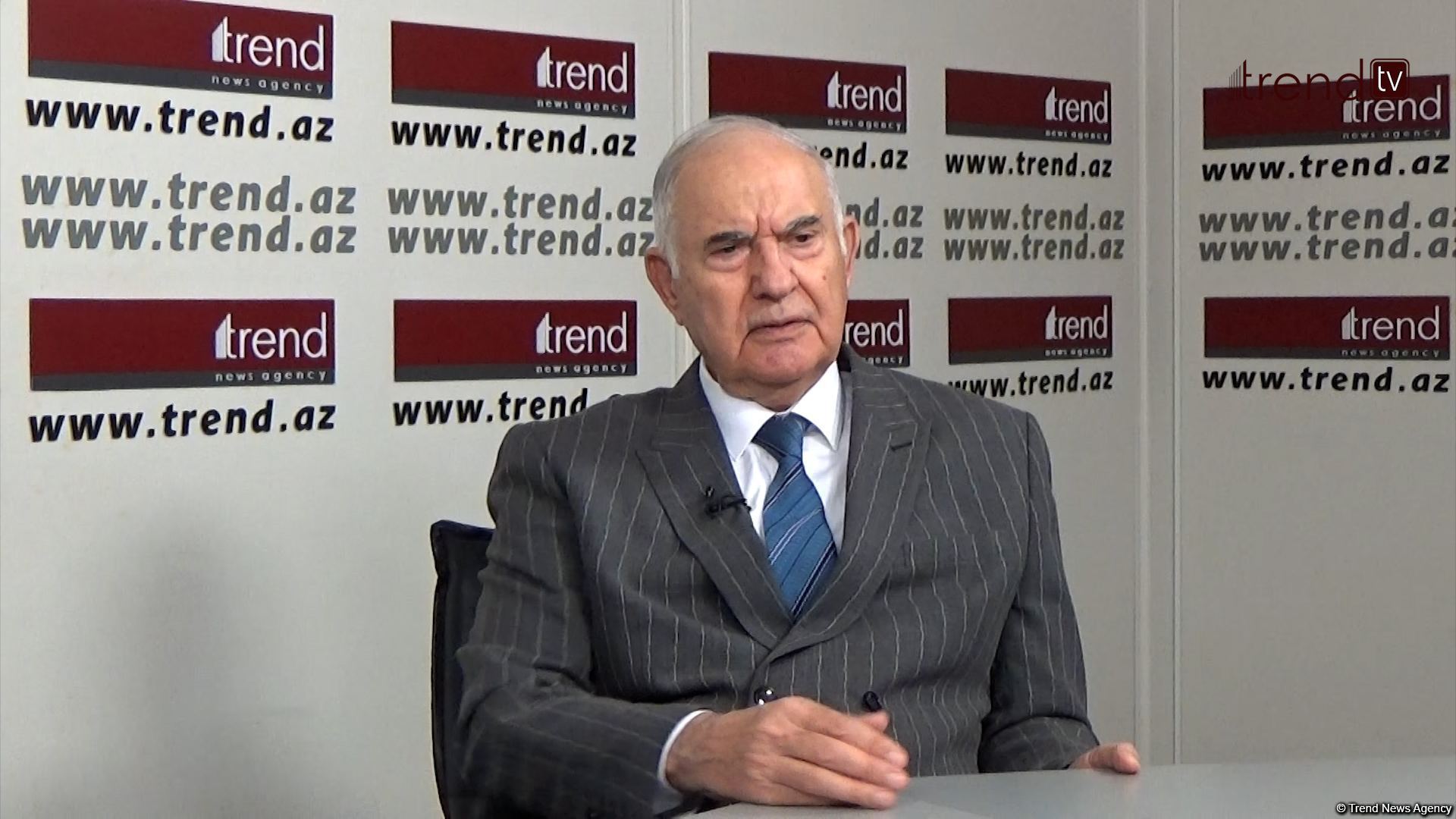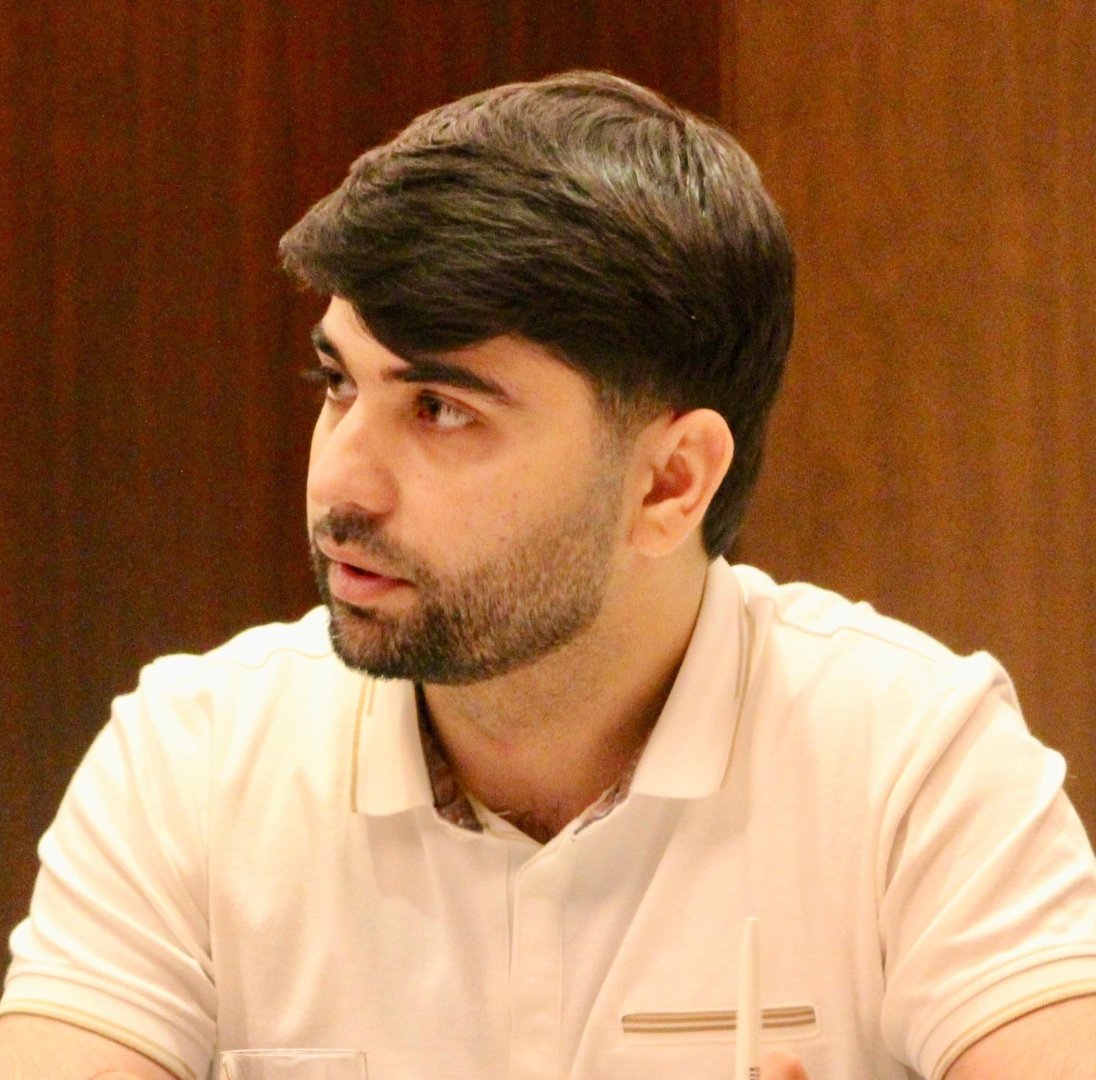BAKU, Azerbaijan, May 12. The name of the National Leader, Heydar Aliyev, is not just a symbol of a politician, but also of the savior of the people and the founder of the state, Azerbaijani political analyst Azer Garayev told Trend.
In the interview, Garayev noted that his rich life, political activity, and invaluable contributions to Azerbaijan are still proudly remembered by the people today
"Heydar Aliyev was born on May 10, 1923, in Nakhchivan city. From a young age, he distinguished himself with his interest in science, education, and public life. After graduating from Nakhchivan Pedagogical Technical School in 1939, he entered the Faculty of Architecture at the Azerbaijan Industrial Institute (now Azerbaijan State Oil and Industry University), but the beginning of World War II prevented him from completing his education," Garayev said.
Between 1941 and 1944, Heydar Aliyev worked in various positions in the Nakhchivan Autonomous Republic, including Head of the Secret Section in the Ministry of Internal Affairs, and later as the Head of the General Department in the People's Commissariat's Soviet of Nakhchivan SSR. In May 1944, he was sent to work in the state security services. The political scientist emphasized that hard work, will, and love for the homeland played an important role in Heydar Aliyev's life.
One of Heydar Aliyev's unparalleled services in the history of Azerbaijani statehood was his 25 years of distinguished service in the Soviet Union's State Security Committee (KGB). During these years, he not only demonstrated high professionalism in the field of security but also made invaluable contributions to the training of national personnel and their placement in strategic state structures.
In the 1960s and 1970s, the number of representatives of local nationalities in the security organs of the Soviet Union, including Azerbaijan, was very low. Due to the central government's policies, the promotion of national personnel was limited, and important positions were mostly filled by Russian, Armenian, and other non-Azerbaijani personnel. Heydar Aliyev took purposeful action to change this trend. He made personnel policy one of his top priorities and implemented a systematic program to increase the representation of Azerbaijani youth in the security organs," Garayev said.
According to the expert, the National Leader ensured that young, talented, and educated Azerbaijani students were sent to specialized higher education institutions in Moscow, Kyiv, Leningrad, Minsk, and other cities of the Soviet Union—mainly law and security-oriented institutions. These institutions were the centers where future leadership of the KGB, law enforcement, and other power structures were trained.
"After graduating from these institutions, these young professionals were sent to various cities of the USSR to serve and gain practical experience, including in Moscow, where they worked at the KGB’s central apparatus and acquired advanced skills and knowledge.
Heydar Aliyev personally monitored their service and experience periods, supporting their progress and providing recommendations when needed. After successfully completing their training, many of these Azerbaijani specialists were appointed to important positions in the KGB's Azerbaijan division. This created favorable conditions for ensuring national interests in the security system and for the formation of national cadres loyal to the state.
Heydar Aliyev’s main goal in this personnel policy was not only to protect Azerbaijan’s security from foreign threats but also to build a strong intellectual and professional foundation for Azerbaijan's future independence by enhancing its national personnel potential. As a result of this systematic policy, in the 1970s and 1980s, many patriotic Azerbaijani professionals were promoted to high positions in Azerbaijan’s security organs, and many of them continued to serve in important state structures during the independence period.
His activities in the Soviet State Security Committee hold a special place in Azerbaijan's statehood history. His far-sighted personnel policy, his focus on national interests, and the steps he took to strengthen the national personnel potential laid the foundation for an independent Azerbaijan’s security system. Today, Azerbaijan possesses strong security forces and professional, patriotic personnel thanks to the strategic and thoughtful actions taken by Heydar Aliyev," he said.
The political scientist highlighted that during the plenum of the Central Committee of the Communist Party of Azerbaijan on July 14, 1969, Heydar Aliyev was elected as the First Secretary of the Central Committee.
"These years marked a crucial period of economic and social development for Azerbaijan. Industrial enterprises were built, agriculture was developed, and significant progress was made in education and healthcare. On Heydar Aliyev's initiative, thousands of Azerbaijani youth were sent to prestigious universities in the USSR. He saw the future of his people in the education, knowledge, and national values of the youth," Garayev added.
Garayev further noted that in 1982, Heydar Aliyev was elected a member of the Political Bureau and appointed the first deputy chairman of the Soviet Union’s Council of Ministers.
"In his role, Heydar Aliyev oversaw some of the most critical sectors of the USSR’s economic, social, and cultural life. His leadership in this capacity was a remarkable achievement, not only for him but for the entire Azerbaijani people. Even while based in Moscow, he remained deeply committed to Azerbaijan, consistently working to open new avenues for the republic. In October 1987, in protest against the political course set by the Political Bureau of the Soviet Union's Central Committee and General Secretary Mikhail Gorbachev, Heydar Aliyev resigned from his positions. This act served as yet another undeniable demonstration of his unwavering loyalty to his people as a true leader," he added.
The political scientist also pointed out that on January 20, 1990, following the Soviet army's massacre in Baku, Heydar Aliyev visited the Azerbaijani representation in Moscow, where he strongly condemned the military intervention by the USSR leadership. His bold and resolute stance was a courageous act during a critical moment in history.
"Upon his return to Azerbaijan in July of that year, Heydar Aliyev resumed his political activities in his homeland of Nakhchivan. Initially, he was elected as a people's deputy to both the Azerbaijan SSR and the Nakhchivan ASSR, later becoming the chairman of the Supreme Soviet of the Nakhchivan Autonomous Republic. In this role, he played a pivotal part in the region's swift return to stability. In 1993, when Azerbaijan found itself in a severe political, economic, and military crisis, Heydar Aliyev was called to Baku at the urgent request of the people. His return to power in June marked the beginning of the country's shift towards stability and progress.
The reforms initiated by Heydar Aliyev after 1993 reinforced Azerbaijan's independence, enhanced its standing in international relations, and sparked economic revival. He placed Azerbaijan on the global energy map with the 'Contract of the Century,' a landmark oil agreement that significantly contributed to the country's future development," he said.
Furthermore, Garayev noted that the new Constitution, adopted in 1995 under Heydar Aliyev's leadership, laid the groundwork for the establishment of a legal and democratic state.
"Fundamental steps such as building an army, organizing state institutions, and liberalizing the economy serve as clear indicators of his profound vision of statehood. At the same time, the protection of national and spiritual values, the regulation of religion-state relations, and the reconstruction of the education and healthcare systems held a special place in his activities. He approached every field with a civic stance, seeing the welfare of the people as the highest goal. Youth also occupied a significant place in the great leader's policy.
He always gave special attention to young people. Great leader Heydar Aliyev ensured they grew up with a sense of patriotism, were well-educated, and had modern minds. The establishment of the Ministry of Youth and Sports in 1994, the declaration of 1996 as the 'Year of Youth,' and the establishment of February 2 as Youth Day are vivid examples of this policy. Moreover, he created ample opportunities for young people to study abroad and participate in various international programs," he said.
Garayev also emphasized that Heydar Aliyev was not only a leader and president; he was a genius who united with his people, guided them through trials, and instilled faith in the future.
"He stood by his people during the most difficult moments in history, successfully led them through challenges, and turned their hopes for the future into reality. Under his leadership, Azerbaijan not only preserved its independence but also strengthened it, becoming a leading state in the region. He accepted the fate of the people as his own, working tirelessly for the well-being and happiness of every Azerbaijani.
One of Heydar Aliyev's thoughts, which most vividly expressed his devotion to the nation, was: 'I have always been proud, and today I am proud that I am an Azerbaijani!' This statement has already become a national philosophy, deeply embedded in the hearts of millions. These words are not just an expression; they are a powerful call reflecting a whole ideology, a sense of national self-awareness, and love for the homeland. This statement by the great leader embodies the identity, spiritual unity, and national pride of every Azerbaijani," the political analyst added.
Stay up-to-date with more news on Trend News Agency's WhatsApp channel







